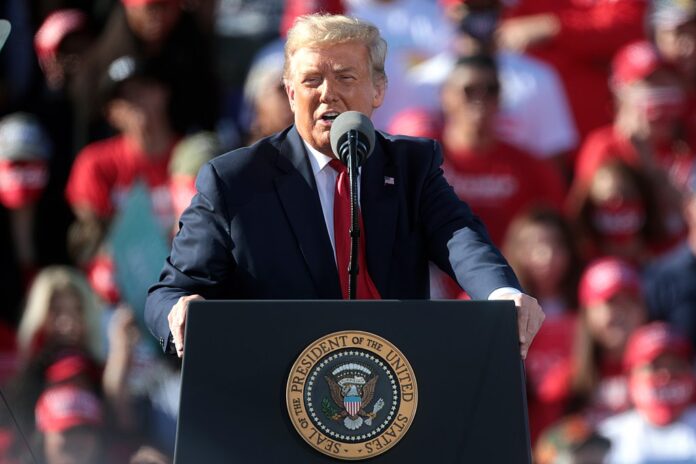Federal Judge narrows scope of charges against Former President Trump, removing episode involving sensitive military map from indictment
In a pivotal development within the classified documents case against former President Donald J. Trump, Federal Judge Aileen M. Cannon made a significant ruling on Monday, narrowing the focus of the charges against him. The judge determined that prosecutors cannot include an episode where Trump allegedly revealed a highly sensitive military map to a political adviser, Susie Wiles, months after leaving office.
Judge Cannon’s decision, while trimming down the indictment, primarily serves as a critique of the prosecutors’ approach rather than a substantial setback to the overall case against Trump. While technically striking the incident from the indictment, the judge indicated that prosecutors could still introduce evidence of it during trial if deemed necessary.
Embed from Getty ImagesThe episode in question occurred during a meeting at Trump’s Bedminster, N.J., golf course in August or September 2021. Prosecutors allege that Trump displayed a classified map related to a military operation to Wiles, who lacked security clearance or “need-to-know” authorization for such information.
Though indicative of Trump’s alleged mishandling of classified materials, the incident was peripheral to the core allegations in the case. The charges primarily revolve around Trump’s removal of nearly three dozen sensitive documents from the White House and subsequent obstruction of attempts to retrieve them from his Mar-a-Lago estate in Florida.
While Judge Cannon struck down the episode involving the map, she retained a similar allegation from a preceding incident at Trump’s Bedminster property, where he purportedly revealed a classified battle plan to individuals interviewing him for a memoir.
Analysis:
Legal Ramifications: Judge Cannon’s ruling underscores the judicial scrutiny faced by prosecutors in their pursuit of Trump, emphasizing the necessity for precise and relevant charges. While the removal of the map incident narrows the scope of the indictment, the core allegations of document removal and obstruction remain intact.
Prosecutorial Strategy: The judge’s decision reflects a balancing act between ensuring a fair trial and upholding legal standards for charging documents. Prosecutors must demonstrate a clear nexus between Trump’s actions and the charges levied against him, avoiding extraneous allegations that could dilute the case’s focus.
Defence Challenges: Trump’s legal team’s challenges to the inclusion of the map incident highlight their strategy of dissecting the prosecution’s case and contesting the validity of the charges. By targeting perceived inconsistencies and legal lapses, the defence seeks to undermine the prosecution’s narrative and cast doubt on the case’s merits.
Judicial Oversight: Judge Cannon’s meticulous evaluation of the indictment underscores the judiciary’s role in safeguarding defendants’ rights and ensuring procedural fairness. Her rulings shape the contours of the trial and influence the presentation of evidence, ultimately shaping the outcome of the proceedings
